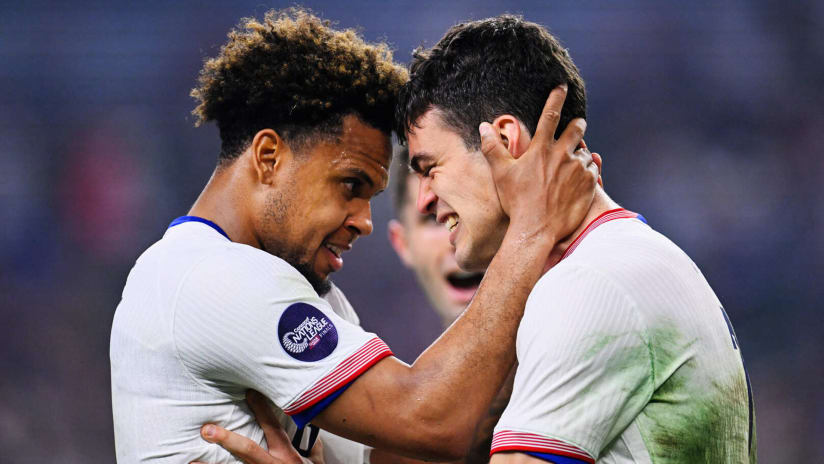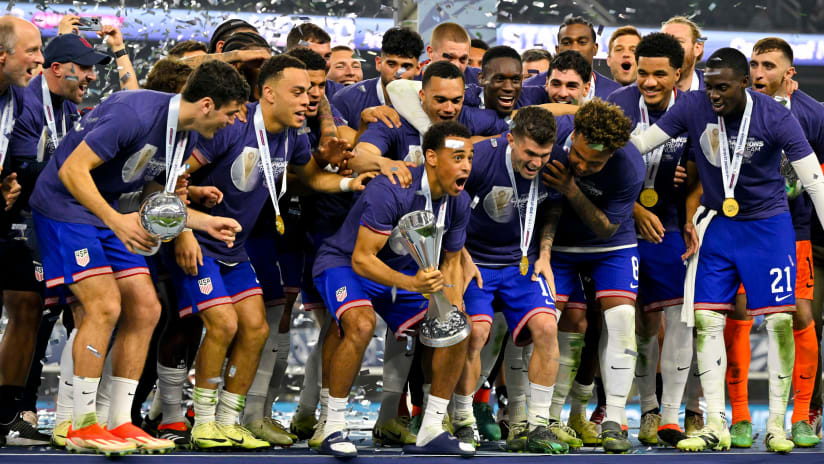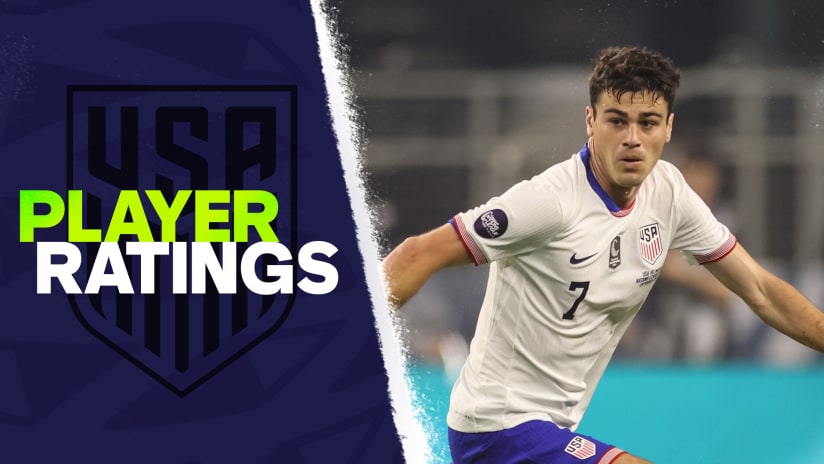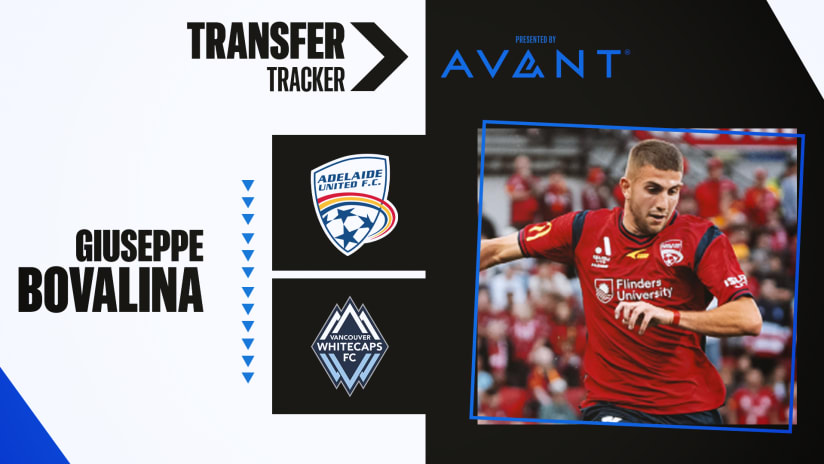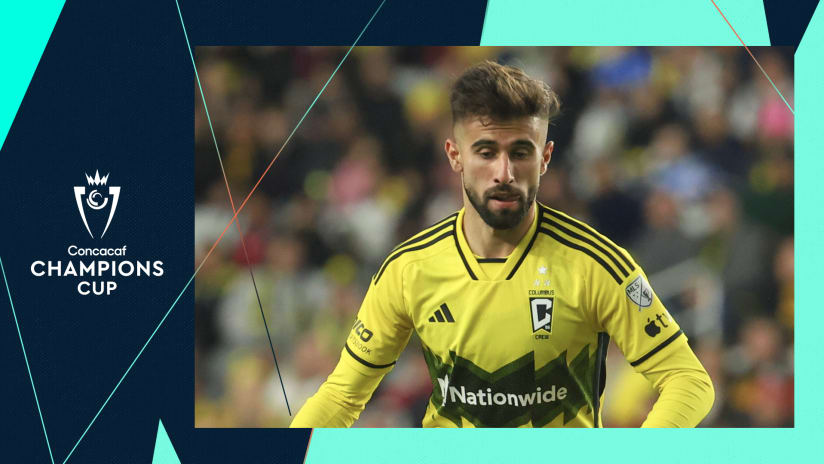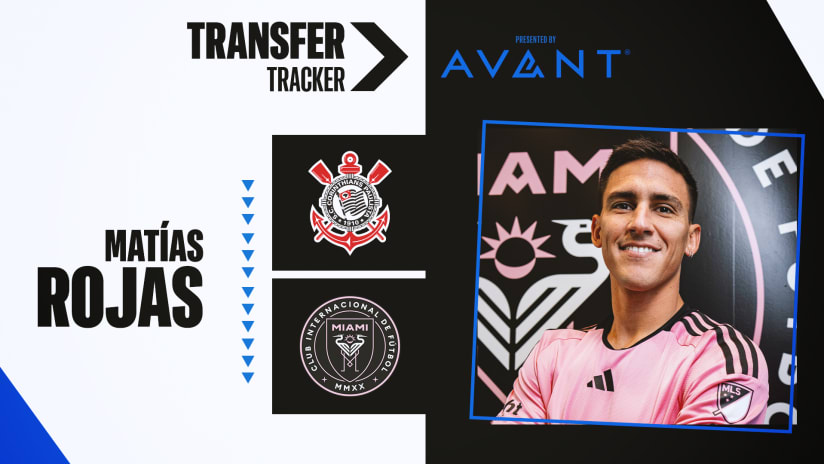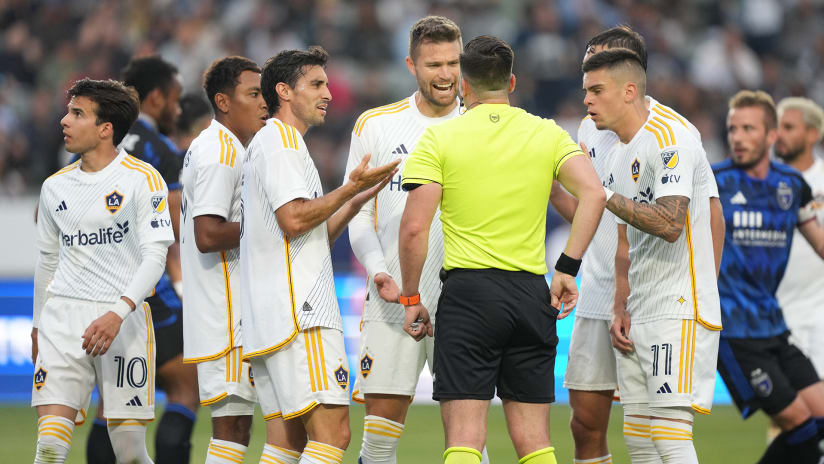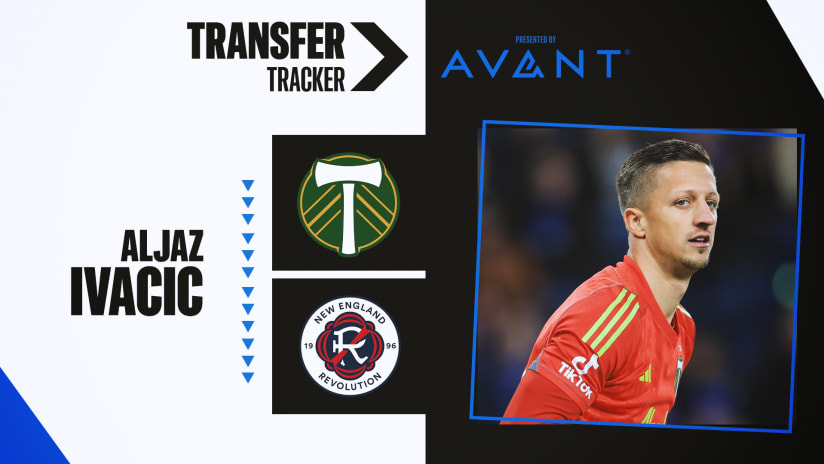On Thursday, the US national soccer team will play one of the most anticipated games in its history when they take on Germany in Recife, Brazil, the FIFA World Cup. The result will determine if the American team plays on or if they come home.
From ESPN to Univision, CNN to Fox Sports, NPR to WKRP in Cincinnatti, this game will be THE talk of the day.
Now we know that many of the people tuning in might be relatively new to the sport and the World Cup. Hopefully, they will have a soccer expert nearby to guide them through the day.
But if not, here’s a quick primer on the most important terms and ideas you’ll hear discussed before, during, and after the game.
US National Team — The team that represents the United States in international tournaments - like the "Dream Team" does in the Olympics. It is comprised of players who play in domestic leagues around the world, including our own Major League Soccer, the English Premier League, and the German Bundesliga. Just like the Dream Team doesn't play against NBA teams, no national teams in soccer play against club teams - MLS or otherwise. Expressed as #USMNT on Twitter.
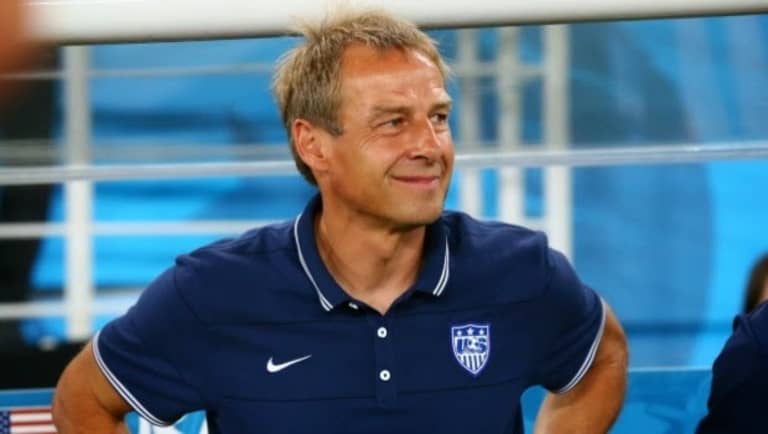
Jurgen Klinsmann — Head coach of the US national team. Klinsmann, who was born and raised in Germany, played for the German national team that won the 1990 World Cup and coached the German national team at the 2006 World Cup. Often referred to by American media as simply “Jurgen” and sometimes as “Klinsi.”
German national team — The US’s opponents on Thursday are one of soccer’s historical powerhouses. They have won three World Cups (1954, 1974, 1990), and currently ranked #2 in the world, according to the FIFA Rankings. (The US is at #13, by the way.) They are nicknamed Die Mannschaft.
Group Stage — The first stage of the World Cup, in which the 32 teams are divided into eight groups of four. The teams play a round robin within their group, with the top two teams advancing to the Knockout Round. The US is in Group G with Germany, Ghana, and Portugal. The group was largely considered this year's "Group of Death," the nickname for the most difficult group at the World Cup.
Knockout Round — The second stage of the World Cup. It is a traditional, single-elimination bracket made up of the 16 teams that advance from the eight groups.
US team’s scenarios for advancing — The USMNT is in a good position to advance to the Knockout Round, depending on the outcome of the match against Germany and also, possibly, the outcome of the Portugal-Ghana match played at the same time. Here are the scenarios:
- If the US win or tie vs. Germany;
- If the US lose to Germany AND Portugal and Ghana tie;
- If the US lose to Germany AND Portugal or Ghana win but do not make up the goal differential (see: next entry)
Goal differential — The difference between how many goals a team has scored and how many goals it has given up. This is the first tiebreaker when determining the group standings. Heading into the Germany match, the USA has a +1 goal differential, Ghana has a -1, and Portugal has a -4.
For example: If the US loses 2-1 vs. Germany, and Ghana wins 3-1 over Portugal, then Ghana advance. If, however, the US loses 2-1 while Ghana wins 2-1, the US would advance.
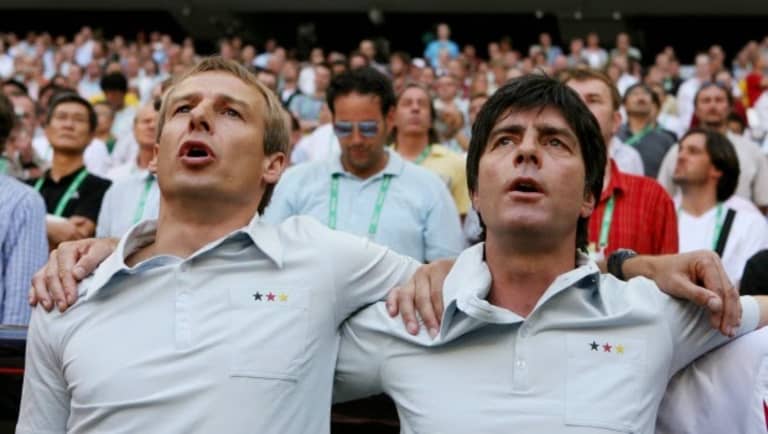
Jochim Löw — Head coach of the German national team (at right, with Klinsmann). Löw was one of Klinsmann’s assistant coaches with Germany at the 2006 World Cup. By the way, his name is pronounced “Yo-kim Luv.” His nickname is Jogi, which is pronounced Yogi. (Think: Yogi Bear.)
Simultaneous starts — The USA-Germany game and the Portugal-Ghana game will both kick off at 12 noon ET. This is done to avoid any collusion among the teams with regards to the results.
Collusion — Some observers have suggested that the USMNT and Germany might coordinate the final result of their match because both the US and Germany will advance with a tie. Many make reference to an allegedly pre-arranged tie between West Germany and Austria at the 1982 World Cup known as the “Disgrace of Gijon”; the result ensured that both teams advanced. This week, some have pointed to the relationship between Jurgen Klinsmann and Jochim Löw as reason to worry about collusion. But don't worry: There will be no collusion on Thursday. Why? Because Jurgen Klinsmann says so:
“I will give [the Germans] big hugs before the game and then leave to the side. We’re gonna get the job done and we’re gonna give a farewell hug again after the game.”
The German-Americans — The USMNT has five players who were raised in Germany, born to American servicemen fathers and German mothers. All five — Jermaine Jones, Fabian Johnson, John Brooks, Timothy Chandler, and Julian Green — were eligible to play for Germany or the United States, but for one reason or another ended up in red, white and blue. Four of the five play professionally in the German league, the Bundesliga.
American Outlaws — The US national team’s organized supporter group. They have traveled in the thousands to Brazil and will definitely be heard in the stadium.
Viewing Party — An organized gathering of fans in parks, bars, diners, basements, backyards, and the TV section of your local electronics store. On Thursday, they will be everywhere and anywhere that has a television.
“I Believe That We Will Win!” — The American Outlaws' loudest, proudest, biggest, baddest, Oh say can you see? Yes, we can chant. Period.


